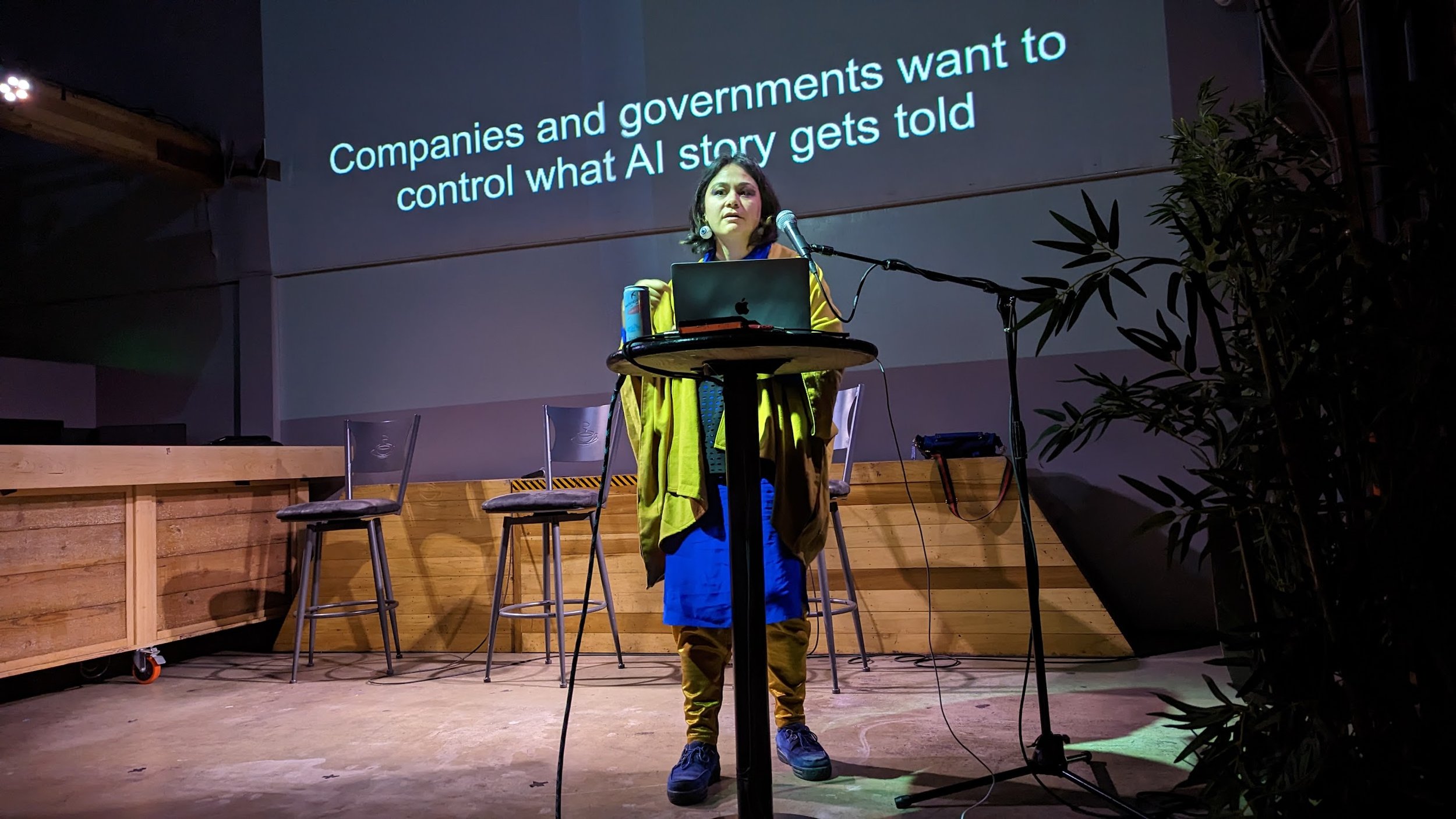Detail of illuminated essay in Logic(s) “The Origin of Clouds” Medallion depicting Neural Network, with Ottoman Empire style flowers as node camera. Surveillance cameras are at output and input. The lines are outlined in gold of the network and each created triangle is colored like stained glass. The colors at the top are Microsoft and bottom are Google logo colors. Gritty texture blood red background. This watercolor uses an algorithmic hand-drawing technique developed in Islamic art practice as a physical counter-narrative to digital algorithmic techniques.
An Expanded Art Practice
Artist statement on the evolution of my practice. Not into art theory? Go over to Icarus Salon to look at the work.
Over the past decade, my art has evolved to become an entanglement of discourse, practice, and part-to-whole relationships. I group this new work under Icarus Salon - an experimental art and research initiative that organically developed. This work is better defined under the term “conceptual art” rather than “social practice” while it also tries to find a balance in materiality as a construction of social assemblages.
My projects are now fundamentally dependent on the work of others, scholars, activists, and friends, in a way my painting practice had not been. I also partner with organizations, companies, and policymakers as a business partner and as an artist. This dialogue layers various actors, aesthetics, organizations, culture, theory, and economics together in new ways. Yet as an artist navigating these spaces, I remain an outsider - questioning, challenging, and free to travel in between spaces and take ideas from one field into another. Each project excavates what cultural, institutional, and discursive conditions shape how we understand art. This insight extends into exploring the conditions and relationships of ideologies, power, language, and labor.
Unchanging throughout the past 25 years of my art career, is my interest in narratives, connection, and expansion. Currently, this involves looking at propaganda, disconnection, and reductionism related to technology. I’m interested in the many roles of art and situating art in the context in which it is created to make material the politics of art and artists. In this larger ecosystem of collaboration and movement with others, there can be ways to render the status quo fragile, and contestable.
This takes form as art through salons, visual art, digital projects, lectures, and social experiments. Currently, I am examining my family history with colonialism and imperialism and expanding this into broader questions surrounding how emerging technologies of AI, big data, and algorithmic logic concentrate power and replicate past harms. What is the relationship of belief to socio-technical systems? How can art validate marginalized epistemologies that exist outside of Western technological hegemony? What could cultural resistance look like in this context? The stakes are high as we face many global crises.
Gray Area Festival, Performance Lecture, 2023, Photo: Barak Shrama
Local Love Oakland, Performance Lecture “Hella World” 2021
Swissnex, How to Explain Pictures to Artificial Intelligence Policy Makers, 2019
Binary Salon performance lecture “Limits of AI”, 2023
AFOG @ UC Berkeley, academic lecture on AI Hype
Local Love Oakland, performance lecture “Hella World” 2021
Glass Room, Panel on Labor and the Tech Worker Movement, 2019







